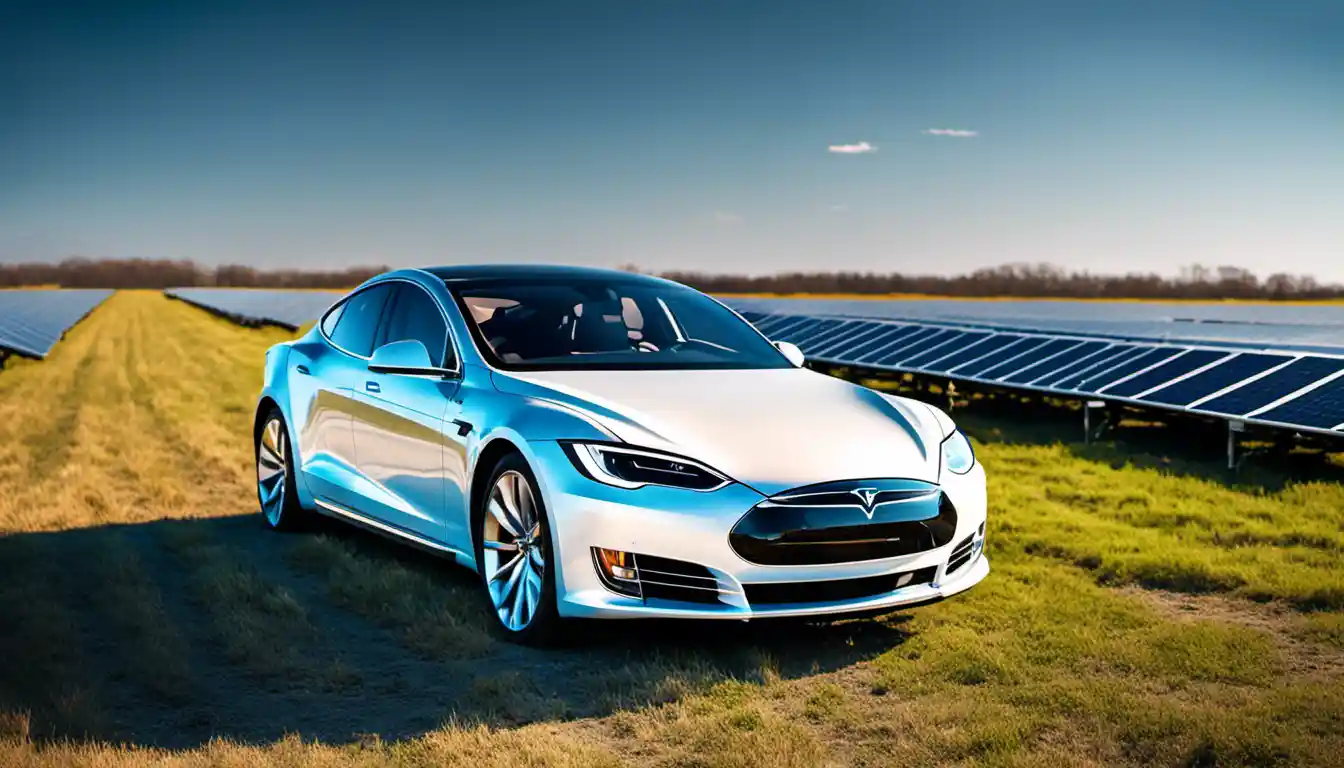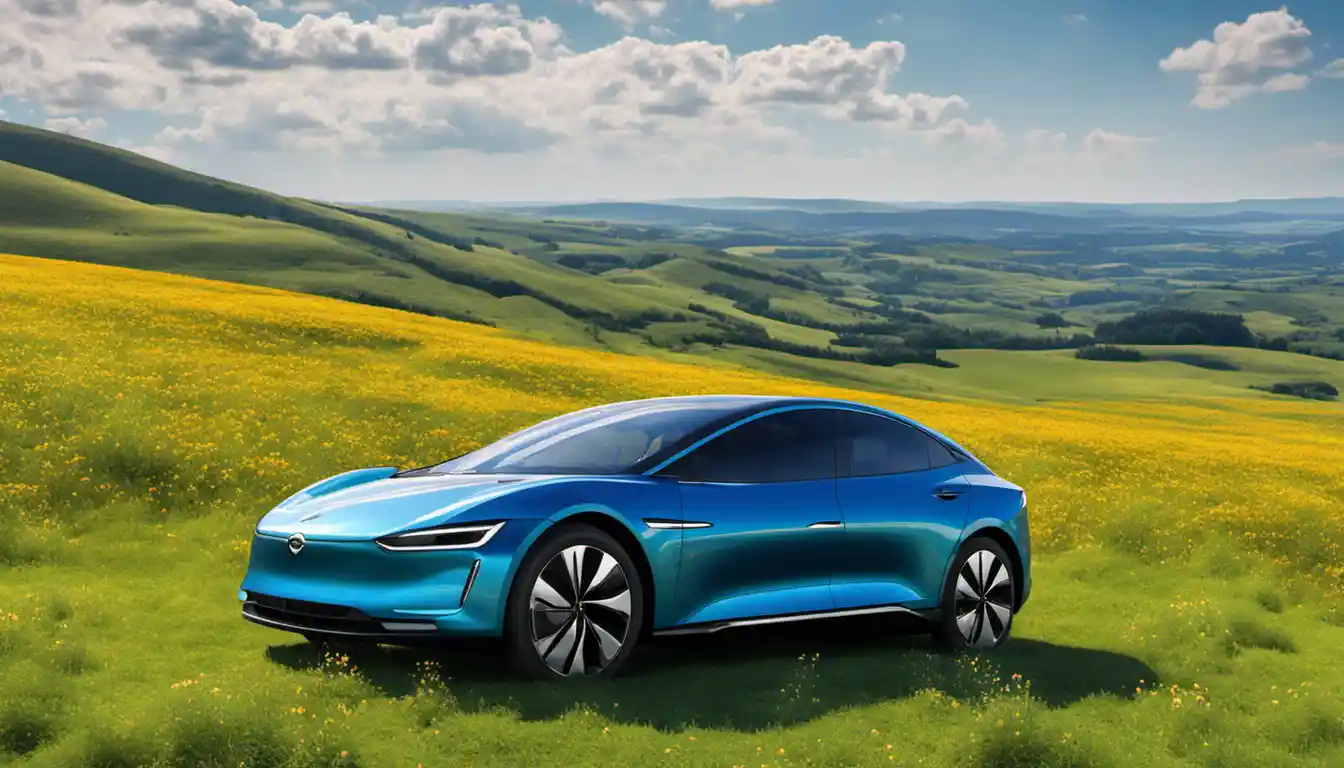Introduction to Portable Solar Panels
Yes, you can theoretically charge a Tesla with portable solar panels. However, it could take a significant amount of time due to the lower efficiency of portable panels compared to full-scale residential solar panel systems. Moreover, you would need a solar inverter to convert the solar energy into a usable form for your car’s battery.
Solar energy has experienced tremendous growth in the past decade. It’s an eco-friendly alternative to fossil fuels, offering a renewable source of energy that can power homes, businesses, and, surprisingly, electric cars. Portable solar panels, in particular, are gaining popularity due to their convenience and versatility.
A portable solar panel is a light, compact unit that captures solar energy and stores it in a battery. It’s connected to a solar charge controller that helps regulate the energy going into the battery, preventing overcharging and ensuring efficiency. Ever wondered how they work? Well, these panels comprise of many tiny photovoltaic cells. They absorb sunlight and convert it into electricity.
Feasibility of Charging a Tesla with Portable Solar Panels

Now, the big question: can you charge a Tesla with portable solar panels? It’s a captivating thought, and theoretically possible, but is it practical and efficient? Well, to answer that, we need to look at some numbers.
A standard portable solar panel can produce around 100 watts of power in an hour under ideal conditions. But a Tesla – a power-hungry beast that it is – requires a lot more energy than that.
For instance, let’s take the Tesla Model S, with a 100 kWh battery. If you’re hoping to use solar energy to charge it from 0% to 100%, you’d need around 1000 hours of ideal solar conditions with a standard 100w portable solar panel. Now, that’s a long time to wait for a full charge!
Theoretically, you could use an array of multiple solar panels to speed up the process but practically, it would be quite the undertaking… and one needs to also factor in the weather dependency of solar panels.
Practical Considerations of Charging a Tesla with Portable Solar Panels
A perfect sunny day might sound like an ideal situation for solar panels, but the reality is often different. The efficiency of solar panels can vary widely depending on several factors, including the angle of the sun, cloud cover, dirt or dust on the panels, and even the ambient temperature.
Adding to the logistics, you’d also have to consider how to transport and set up a large number of solar panels. And let’s not forget about the cost of purchasing numerous solar panels, which could offset potential savings from avoiding the traditional charging methods.
Tesla’s Stance on Solar Charging

Tesla, a front-runner in the electric car revolution, is known for its innovative and futuristic approach. In fact, Tesla itself has moved towards solar power solutions. In a perfect blend of sustainable living and architectural design, Tesla’s solar roofs act like a giant solar panel, while the Tesla Powerwall (a home battery) stores the energy generated. It is essentially a mini power station, capable of powering a house and, yes, charging a Tesla.
Can You Charge an Electric Car With Portable Solar Panels?

Sticking to the realm of electric cars: can you charge other electric vehicles with portable solar panels? The answer largely remains the same — you could, theoretically. The process and considerations remain the same regardless of the brand or model of the electric car. The output of solar power and the car’s own energy requirements dictate the feasibility of solar charging.
The Future of Solar Charging for Electric Cars
The potential for combining solar power with electric vehicles is immense. We are already witnessing incredible innovations in both sectors. For instance, solar body panels — where the body of the car itself is a solar panel — is one burgeoning field of research.
As technology progresses, solar charging could become a more viable option for powering electric vehicles. For now, though, while it is possible to charge a Tesla with portable solar panels, it might be more practical to use solar power for supporting home energy needs.
In the end, while exploring solar energy options, it’s important to remember that solar panels are truly incredible innovations. They have a wide variety of applications outside of just charging your Tesla. For more information, be sure to check out our piece on why /portable-solar-panels-are-good-heres-why.
We’ve now hopefully answered the question, ‘Can you charge a Tesla with portable solar panels?’ You theoretically can, but whether you’d really want to, well… that’s an entirely different story. The future is bright though, and who knows, we may not be that far from appreciating the real novelty of charging our EVs while on an outdoor adventure in our solar RV or under a beach umbrella. Here’s to that sun-soaked future!



